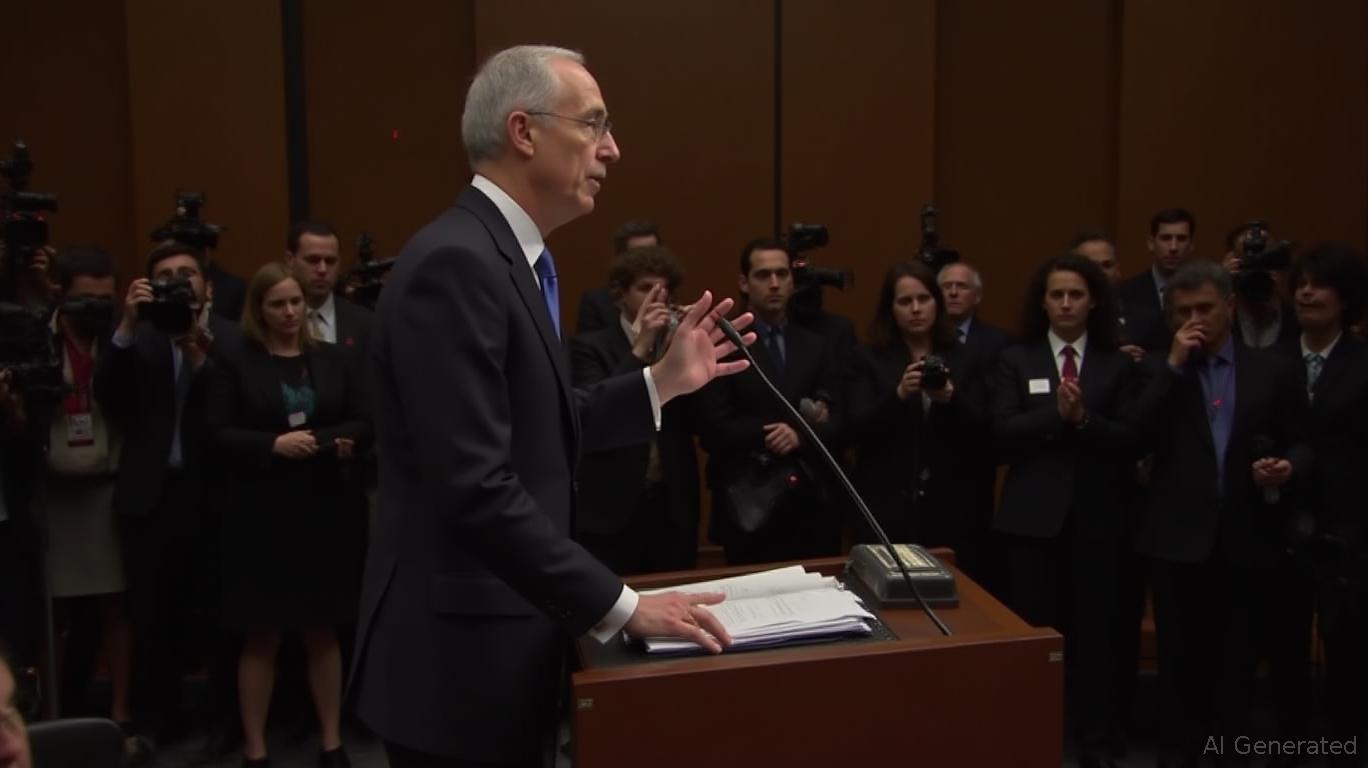U.S. and China Hold Trade Negotiations in Kuala Lumpur to Prevent Escalation and Extend Ceasefire
- U.S.-China high-level trade talks resumed in Kuala Lumpur, 2025, aiming to avert a trade war ahead of potential Trump-Xi APEC summit discussions. - Negotiations focused on agricultural trade (U.S. soybean imports to China dropped to zero in September 2025), rare earth export controls, and semiconductor tariffs. - Malaysia's neutral role highlighted its diplomatic influence, with U.S. officials acknowledging its strategic value in stabilizing trade ties amid unresolved issues like Hong Kong's Jimmy Lai de
From October 24 to 27, 2025, senior officials from the United States and China reconvened in Kuala Lumpur, Malaysia, for high-level trade discussions. These talks were intended to ease rising economic frictions ahead of a possible meeting between President Donald Trump and President Xi Jinping at the APEC summit in South Korea. U.S. Treasury Secretary Scott Bessent and Chinese Vice Premier He Lifeng led the delegations, focusing on contentious issues such as agricultural trade, rare earth export restrictions, and tariffs on semiconductors. Taking place alongside the ASEAN Summit, the negotiations highlighted both countries’ intent to prevent further conflict as a temporary trade ceasefire is set to lapse on November 10, according to a
Agricultural trade continues to be a major obstacle. In September 2025, U.S. soybean shipments to China dropped to zero for the first time since November 2018, a result of reciprocal tariffs and China’s pivot to other suppliers like Brazil and Argentina. While China’s total soybean imports reached 12.87 million tons in September—the second-highest ever—American farmers have faced heavy losses. Trump has described the soybean issue as a negotiation strategy by China, whereas Beijing stresses the importance of reducing trade barriers, the ukragroconsult report notes.

The discussions also covered China’s new limits on rare earth exports, which the U.S. claims could disrupt global supply chains for technology and defense. In response, the U.S. has initiated a Section 301 investigation into China’s adherence to the 2020 Phase One trade deal, alleging that Beijing has not fulfilled its promises on market access and purchasing U.S. products. The Trump administration has warned of possible retaliatory actions, including imposing a 100% tariff on Chinese imports if the dispute worsens, according to an
Malaysia’s selection as a neutral location underscored its increasing diplomatic role in facilitating dialogue between the U.S. and China. Prime Minister Anwar Ibrahim reiterated Malaysia’s dedication to encouraging talks, while American officials recognized Kuala Lumpur’s strategic importance in maintaining stable trade relations. The city’s robust semiconductor industry further emphasized its significance, as both countries aim to secure supply chains for electric vehicles and consumer electronics, as highlighted in a
By the second day, U.S. Trade Representative Jamieson Greer reported that progress had been made toward arranging a “productive meeting” between Trump and Xi, with topics including soybean trade, Taiwan, and Hong Kong. However, China has not yet confirmed the leaders’ meeting, and unresolved matters—such as the detention of Hong Kong media figure Jimmy Lai—remain significant. While a preliminary deal could lead to an extension of the trade truce, experts warn that any agreement is fragile given ongoing geopolitical tensions, according to
These negotiations occur as the U.S. intensifies efforts to address China’s trade practices, with groups like the American Primary Aluminum Association backing the Section 301 investigation. Industry representatives argue that China’s failure to comply with the Phase One agreement has damaged U.S. manufacturing, calling for stricter enforcement of trade policies, according to
If these disputes are not resolved, the risk of a deeper trade conflict looms, potentially impacting the global economy. On the other hand, reaching a compromise could bring significant benefits to American agriculture and help stabilize food markets, as Fortune observes. The results of the Kuala Lumpur negotiations are expected to influence the future direction of U.S.-China relations, with effects extending well beyond bilateral trade, the ukragroconsult report concludes.
---
Disclaimer: The content of this article solely reflects the author's opinion and does not represent the platform in any capacity. This article is not intended to serve as a reference for making investment decisions.
You may also like
Ethereum News Today: Buterin: The Ethereum Blockchain Remains Secure, While Off-Chain Trust Poses Risks
- Vitalik Buterin warns Ethereum's chain is secure against 51% attacks but off-chain systems like oracles and bridges face collusion risks. - Historical DeFi failures (bZx, Compound) highlight real-world losses from unverified off-chain data, costing millions in damages. - Ethereum's $3,934 price (Oct 2025) reflects short-term gains but 13.75% 60-day decline amid growing Layer 2 adoption and ETF speculation. - Buterin stresses need for on-chain verifiability as SEC scrutiny and validator trust challenges r

Is Target's Plan to Eliminate 1,800 Jobs Enough to Reinvigorate the Struggling Retailer?
- Target Corp. plans to cut 1,800 corporate roles (8% of headquarters staff) under new CEO Michael Fiddelke to address operational inefficiencies and stagnant sales. - The restructuring targets 1,000 current employees and 800 open positions, focusing on U.S. managerial roles, as Fiddelke aims to streamline operations and reposition the retailer. - Analysts question the strategy’s effectiveness, citing unresolved challenges like shifting consumer preferences and economic pressures, despite cost-cutting effo

Bitcoin Updates: Can the Malaysia Summit Ease Global Market Tensions Amid U.S.-China Trade Negotiations?
- U.S. and China restart high-level trade talks in Malaysia to ease tensions spilling into global markets and Bitcoin volatility. - U.S. Treasury Secretary Bessent and Chinese VP He Lifeng address tariffs, rare earths, and trade imbalances ahead of a potential Trump-Xi summit. - Unmet 2020 trade deal commitments and Trump's 145% tariffs on Chinese goods have deepened the trade war, destabilizing supply chains and crypto markets. - Bitcoin dropped to $108,000 amid fears of prolonged hostilities, highlightin
Centralized Infrastructure Causes Issues for Decentralized Crypto During AWS Outage
- AWS outage exposed crypto platforms' reliance on centralized infrastructure despite resilient blockchains. - 70% of Ethereum nodes hosted on major clouds like AWS, creating systemic risks per Coinotag. - Experts advocate hybrid models (e.g., Filecoin) and multi-homing to mitigate single-failure points. - Regulatory compliance and speed challenges hinder adoption of decentralized alternatives. - Industry faces balancing scalability, compliance, and distributed architecture for true decentralization.